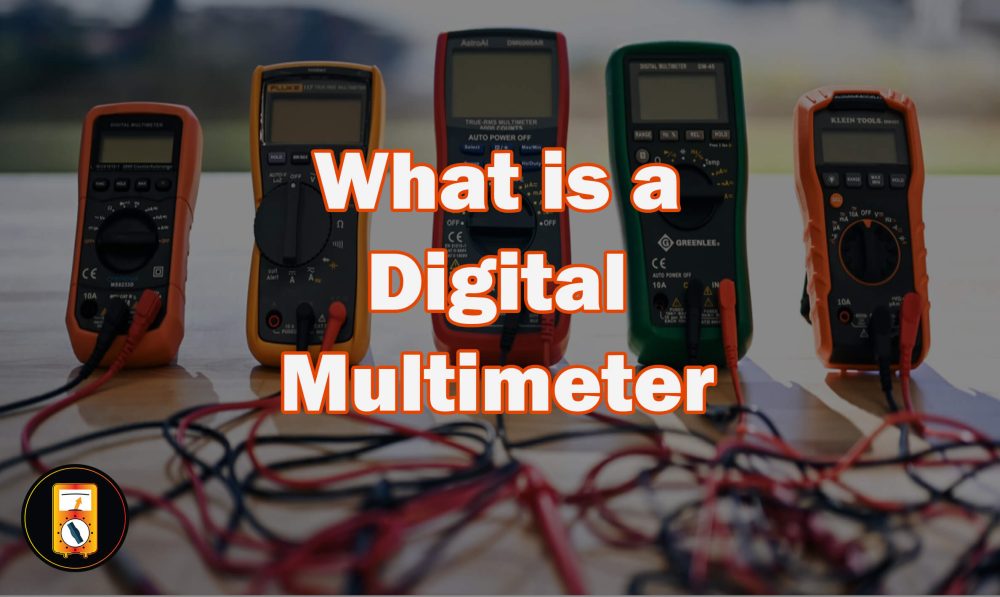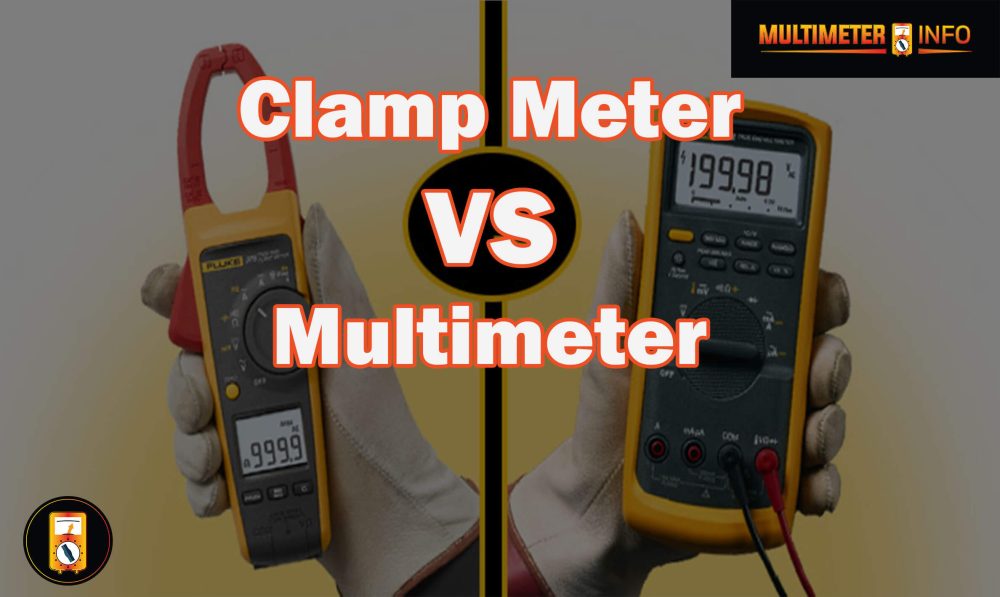Are you a DIY enthusiast or an electrician looking to advance your projects? A digital multimeter is an important tool that is frequently overlooked and misunderstood. A digital multimeter (DMM) is a highly versatile instrument used by technicians, home improvement enthusiasts, and others to test electrical circuitry for voltages, currents, resistance, continuity, capacitance, and other parameters essentially, it allows users to measure anything related to electricity. With its critical role in ensuring circuits are correctly wired and safely functioning as expected, it’s no surprise that a digital multimeter should be included in the toolkit of any serious hobbyist or professional. We’ll go over the advantages of using a DMM and how they can help both professionals and do-it-yourselfers get their jobs done quickly and accurately!

What is Multimeter?
A multimeter, also known as a volt-ohm meter or VOM, is an electronic testing device used to measure electrical properties including current, voltage, and resistance. It can also be used to test continuity, diode operation, and other parameters. Multimeters are generally composed of two probes (one red and one black) that connect to various connectors on the meter.
Multimeters are commonly seen in both professional electronics repair shops and home workshops, where they are used to troubleshoot and diagnose circuit problems. They are invaluable tools that allow more detailed analysis than just measuring voltage with a simple digital voltmeter. By using a multimeter you can not only test for basic continuity between points but also measure the exact value of current flow through the circuit, voltage drop across components, and resistance of individual components. By properly using a multimeter, you can greatly improve the accuracy of your repairs or experiments.
Since multimeters are used to measure both AC and DC voltages, they come in two types – analog and digital. An analog multimeter uses a needle-like pointer that moves along a scale to indicate the value being measured. Digital meters usually have their results displayed on an LCD screen with numerical values which makes it easier to read exact measurements. Whichever type you choose will depend on what task you are trying to complete but both can be highly effective when used correctly.
Overall, multimeters are very useful tools for anyone working with electronics as they allow users to quickly identify problems in circuits and test for continuity, diode operation, and resistance. They can be used to measure both AC and DC voltages and currents, giving users precise readings that would otherwise be difficult to attain. By having a multimeter on hand, it is possible to diagnose and repair problems much more accurately than relying on guesswork alone.
What is a Digital Multimeter?
A digital multimeter, also known as a DMM, is an electronic measuring device used to measure electrical properties such as voltage, current, resistance, capacitance, and inductance. Digital multimeters are one of the most common tools found in any electronics lab or home workshop because they can be used to troubleshoot and diagnose problems with a wide variety of electronic components.
The primary benefit of using a digital multimeter is its accuracy since it utilizes digital technologies rather than analog readings. This allows for more precise measurements compared to an analog multimeter which uses a needle to display the measurement results on a scale. In addition, most digital multimeters include features like automatic ranging which simplifies taking multiple measurements without manual calibration. With all these advantages, it’s no surprise that digital multimeters have become the go-to measuring tool for modern electronics.
Whether you’re a professional technician or a hobbyist, owning a digital multimeter is essential for diagnosing and understanding electrical components. With the right knowledge and skills, you can use your digital multimeter to troubleshoot any kind of circuit – from simple consumer electronics to complex industrial systems. With its ease of use and high accuracy, it’s no wonder why digital multimeters are so popular in today’s world.
Uses of Digital Multimeter:
Digital Multimeters (DMM) can be used for a wide variety of applications such as measuring voltage, current, resistance, and capacitance. It’s also an effective tool for troubleshooting electrical systems. In addition to being able to measure these basic electrical properties, Digital Multimeters can offer advanced functionality such as recording oscilloscope-like waveforms or interfacing with computers via USB ports. With the ever-growing demand for high-tech products, digital multimeters with sophisticated electronics have become commonplace in the market. They are capable of providing higher accuracy readings than their analog counterparts and even come equipped with features like auto-ranging and backlight display.
- Test batteries and electrical circuits to ensure their safety and reliability.
- Monitor voltage fluctuations in motors and other electrical systems during operation.
- Check the accuracy of automotive sensors such as oxygen, oil pressure, and temperature gauges.
- Measure current levels of AC/DC appliances to determine energy usage efficiency.
- Troubleshoot wiring problems associated with home electronics, sound systems, and computers.
- Verify the integrity of fuses and circuit breakers used in your home or office’s electric system.
- Detect ground faults that cause shorts or hazardous conditions in appliances or lighting fixtures by performing continuity tests on wires and cables connected to the devices.
- Verify the accuracy of thermostats and other temperature-sensing devices used to regulate air conditioning, heating, and humidity in buildings.
- Diagnose faulty electronic components such as resistors, capacitors, and transistors used in computers, audio equipment, and other electronic products.
- Test safety systems such as ground fault interrupters (GFI) or smoke detectors to ensure they are functioning properly.
Digital Multimeters are an invaluable tool for anyone involved in the maintenance or troubleshooting of electrical systems. With their wide range of features and accurate readings, they can help you determine any issue quickly and easily while also ensuring your safety when dealing with electrical wiring or components. They are essential for any professional or hobbyist working with electricity, electronics, and other types of electrical systems.
Frequently Asked Questions:
A digital multimeter reads the input signal and displays the result on its LCD screen with precision. Its circuitry converts analog signals into digital readings by converting them into numerical values that are displayed on the meter’s display.
There are two main types of digital multimeters: auto-ranging meters and manual-ranging meters. Auto-ranging meters automatically detect and set the range of measurement, while manual-ranging meters require the user to manually select a range.
Yes, some digital multimeters come with temperature measurement functions and can be used to measure temperatures ranging from -20°C to 1000°C. To measure temperature using a digital multimeter, simply attach the thermocouple probe at one end of the component or circuit being tested and read off the result from the meter’s display.
Digital multimeters should be stored in a cool, dry place when not in use. The device’s contacts and probes should be kept clean to ensure accurate readings and the battery should be periodically checked for correct voltage levels.
Yes, digital multimeters are suitable for home use as they are relatively inexpensive and easy to operate. However, it is important to always take safety precautions while working with these devices as incorrect usage can lead to electric shock or other hazards.
Conclusion:
Digital Multimeters are essential tools for any electrician or technician and offer a great deal of versatility when it comes to troubleshooting electrical systems. With the right knowledge and practice, they can be used to quickly diagnose problems with circuits and components, helping electricians get their jobs done faster and more efficiently.





